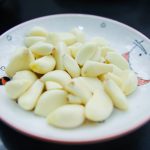The Mediterranean diet is more than just a popular eating plan; it is a way of life that reflects the traditional dietary patterns of the Mediterranean region. This wholesome and balanced approach to eating has garnered widespread attention for its numerous health benefits, including improved heart health, weight management, and overall well-being. In this detailed beginner’s guide, we’ll explore the principles, foods, and lifestyle aspects of the Mediterranean diet, empowering you to embrace this delicious and nourishing way of eating.
Understanding the Mediterranean Diet:
The Mediterranean diet is inspired by the dietary habits of countries bordering the Mediterranean Sea, including Greece, Italy, Spain, and southern France. It is not a rigid diet with strict rules but rather a flexible and sustainable approach to food choices and meal planning. The focus of the Mediterranean diet is on whole, nutrient-dense foods, including an abundance of fruits, vegetables, whole grains, legumes, nuts, seeds, and healthy fats, while limiting processed foods, red meats, and added sugars.
Key Components of the Mediterranean Diet:
- Fruits and Vegetables: Embrace a colorful variety of fruits and vegetables, such as tomatoes, leafy greens, bell peppers, olives, citrus fruits, and eggplants. These nutrient-rich foods provide essential vitamins, minerals, and antioxidants.
- Whole Grains: Choose whole grains over refined grains whenever possible. Opt for foods like whole wheat bread, quinoa, brown rice, and oats to promote better digestion and sustained energy.
- Healthy Fats: The Mediterranean diet is rich in healthy fats from sources like olive oil, avocados, nuts, and seeds. These fats support heart health and are an essential part of the diet.
- Fish and Seafood: Include fish and seafood, such as salmon, tuna, sardines, and shrimp, regularly in your meals. These provide valuable omega-3 fatty acids, which contribute to heart health.
- Legumes and Beans: Legumes like chickpeas, lentils, and beans are excellent sources of plant-based protein and fiber, contributing to overall health and satiety.
- Dairy and Dairy Alternatives: Choose low-fat or fat-free dairy products like yogurt and cheese, or consider dairy alternatives such as almond milk or soy-based products.
- Herbs and Spices: Flavor your dishes with a variety of herbs and spices, like basil, oregano, garlic, and turmeric, instead of relying on excessive salt.
- Moderate Red Wine Consumption: While not a requirement, moderate consumption of red wine, typically with meals, is considered part of the Mediterranean lifestyle.
The Health Benefits of the Mediterranean Diet:
- Heart Health: The Mediterranean diet has been associated with a reduced risk of heart disease and stroke due to its emphasis on healthy fats and whole foods.
- Weight Management: With its focus on nutrient-dense foods and portion control, the Mediterranean diet can support healthy weight management.
- Reduced Inflammation: The anti-inflammatory properties of many Mediterranean foods can help reduce inflammation, which is linked to various chronic diseases.
- Improved Digestion: The diet’s emphasis on fiber-rich foods supports digestive health and regular bowel movements.
- Mental Well-being: Some studies suggest that the Mediterranean diet may be associated with improved mental health and reduced risk of depression.
Practical Tips for Adopting the Mediterranean Diet:
- Start with Small Changes: Gradually introduce Mediterranean-inspired foods into your meals and gradually reduce less healthy options.
- Plan Your Meals: Plan your meals and grocery lists around Mediterranean staples like vegetables, whole grains, and healthy fats.
- Cook at Home: Cooking at home allows you to control the ingredients and ensures a more authentic Mediterranean experience.
- Enjoy Social Meals: Embrace the Mediterranean tradition of gathering with family and friends for leisurely, social meals.
- Stay Active: Regular physical activity is a crucial aspect of the Mediterranean lifestyle, promoting overall health and well-being.
The Mediterranean diet is a rich and flavorful way of eating that promotes numerous health benefits. By incorporating an abundance of fruits, vegetables, whole grains, and healthy fats into your meals, you can experience improved heart health, weight management, and overall well-being. The Mediterranean diet offers a flexible and enjoyable approach to nourishing your body and mind. Remember that adopting a Mediterranean lifestyle goes beyond food choices; it includes staying physically active, enjoying meals in the company of loved ones, and savoring the simple pleasures of life. Embrace the Mediterranean diet as a journey towards a healthier, more vibrant life.










